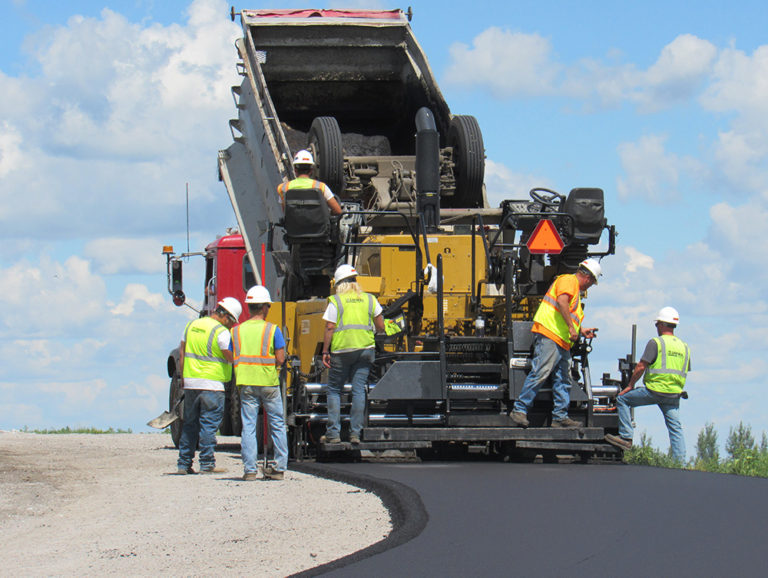RYCE ELLIOT
PRESIDENT
BENNING CONSTRUCTION
How did you first enter the construction industry?
Unlike many people in construction, I do not come from a construction family. I actually got into construction after I started classes at Purdue University to become a civil engineer. After I really got a taste of what the role of a civil engineer entails, I realized that was not for me. I wanted to build, so I joined the construction management program and in turn found the place where I belonged.
Why did you continue to climb the construction ladder? What did you love about the industry that made you want to progress in your career?
The short answer on why I climbed the ladder is that I truly love a challenge. From the time I started working in the construction industry, each position that I held presented a unique set of challenges to overcome and new concepts and skills to learn. Once I became proficient in a position, I asked for and was presented with new challenges and oftentimes a new position. That new position was usually a promotion, and after advancing through those roles, the only advancement left was president, which is the position that I currently hold.
The main thing I love about construction—the thing that gets me up at a very early hour, excited to go to work—is that no two days in construction are ever the same. No matter what you do in the construction industry, every day is interesting and challenging. If you complete a project, then take the exact same project team, documents, client and go three miles down the road and build it again, it will be a completely different experience. Ultimately, there is no better feeling than going to work and truly enjoying what you do, knowing that your work is improving the quality of life for people in the community.
What has been your favorite role?
Being a project manager has been my favorite position. The project manager is the linchpin that keeps the owner, design team and field all working together and communicating. The project manager has to find the balance between being a leader and being a supporter, while at the same time keeping everyone focused on achieving the overall project goals.
What has been the position that challenged you the most?
Two positions have challenged me equally over the years, and both for the same reason: I had to learn a lot very quickly. Those two positions are located at the opposite ends of my career to date—general laborer and president. When I first started in construction, on my first day on a jobsite, I recall being almost overwhelmed with the amount of activity going on around me and the realization that I basically did not know anything. I had to learn very quickly. The first day as president of Benning Construction hit me in almost the same way. I sat down at my desk, looked around and realized that I needed to learn quickly, get a plan together—the right plan—and go to work.
What is your favorite type of project to work on? What is the most challenging?
My favorite type of project is, without a doubt, the construction or renovation of a library. It is always such a fulfilling experience due to the impact it has on the community. When I make this statement, people often ask if libraries are even relevant anymore and the answer is a resounding, ‘yes.’ In recent years, libraries have redefined themselves to better serve their patrons by becoming more than just a place to check out a book or read a paper. Libraries are now hubs of the community where you can check out a book, take a class, get internet access, have a meeting, host a function and provide a stable space for students to study and learn.
The most challenging projects are the ones where there are unique conditions; whether those conditions are bad soils, tight site conditions, utility conflicts that need to be resolved, rock to be removed, specialty construction techniques or anything that requires the entire project team to sit down and really exercise their problem solving abilities. The types of projects where you really have to work to move it forward can be the most challenging, yet the most rewarding.
How have you changed—personally—in the last nearly three decades since experiencing everything you have in this industry?
Besides the gray hair and the laugh lines, the biggest personal changes have been in understanding and reacting to changing conditions. When I first started in the industry, when the smallest thing did not go according to plan, it was very stressful. I felt as though I had failed in my job. As I gained experience and went through enough true emergencies and stressful situations, I have found that I now react very differently to site and company issues, in that I now just see them as problems to be solved. I spend a lot more time now calming down those around me to help them work through the issue.
How have you seen the industry change in that time?
Over the course of my career the industry has experienced significant changes in communication and legal requirements. I’ve also witnessed a generational shift in leadership with a large percentage of the baby boomers moving to retirement, in combination with a severe decrease in the amount of skilled tradespersons and trade leadership. To say it has changed just a bit would be a massive understatement. The communication aspect alone is at a place that was not even dreamed of 30 years ago. At that time, you had a landline to the jobsite trailer. You would call the superintendent, leave a message and hope to hear back in a few hours. Progress photos were a weekly role of film to be developed, and you would be able to review them a week or so after they were taken, which was not efficient or timely. The communication options now are almost overwhelming! You get so much data from the jobsite and so many calls, emails, texts, photos, that it can be difficult to process it all. As dramatic as the shift in communication has been, it is overshadowed by the amount of talent leaving the industry due to retirement and the lack of skilled tradespersons and trade leadership. The departure of this much talent and leadership over the last decade has had a severe impact on how the projects are scheduled and the amount of management that is required. The departure of this amount and quality of talent will definitely make the projects more challenging until we as an industry can properly develop the next generation of leaders.
How is your corporate role as president different from your field role as a general laborer?
That is a [big] question! As a general laborer, you are given your task by a supervisor, where you then go to do that task and are able to focus solely on that as your job. It is a very linear process—get assigned task, perform task, get assigned another task. You don’t really have any interruptions, because if someone asks you to do something else, you reply that you cannot because it is not your job. As president, it is your job to set policy, assign tasks, work with clients, research and decide what work to pursue, and more. All the while, you are constantly being interrupted. The day of the president is not at all linear and you do not get the opportunity to focus on a single task. To counter this, you have to be very disciplined to set aside uninterrupted time each day to focus on getting things done that need to be accomplished.
How did your time in the U.S. Army and college factor into your talent in/affinity for construction?
Looking back, the time in the Army was fantastic preparation for working in the construction industry. From the very first day in the Army, the focus of all of your training can be boiled down into one word—teamwork. Teamwork is driven home at every opportunity to the point that thinking how to work as a team becomes second nature. As a young project manager, I drew on that training and the team mentality to assist in getting the trades in the field to work together to get the job done. As I progressed in my career, the ability to create those field teams on a project grew and allowed some really fantastic things to be done on projects in very short timeframes.
The time spent in school at Purdue University helped focus my drive and really developed my passion for construction. While I was at Purdue, I took a full load of classes and worked 40 hours a week at the same time. This was a great experience, because it really taught me the importance of time management and how to get things done and balance it all. It also taught me how to prioritize what had to be done first and to set time limits on each activity. Basically, I was doing my own critical path schedule before I had a scheduling class. Needless to say, I aced that course a few semesters later. These two times in my life, along with a solid Midwestern work ethic, truly set me up to be successful in construction.






